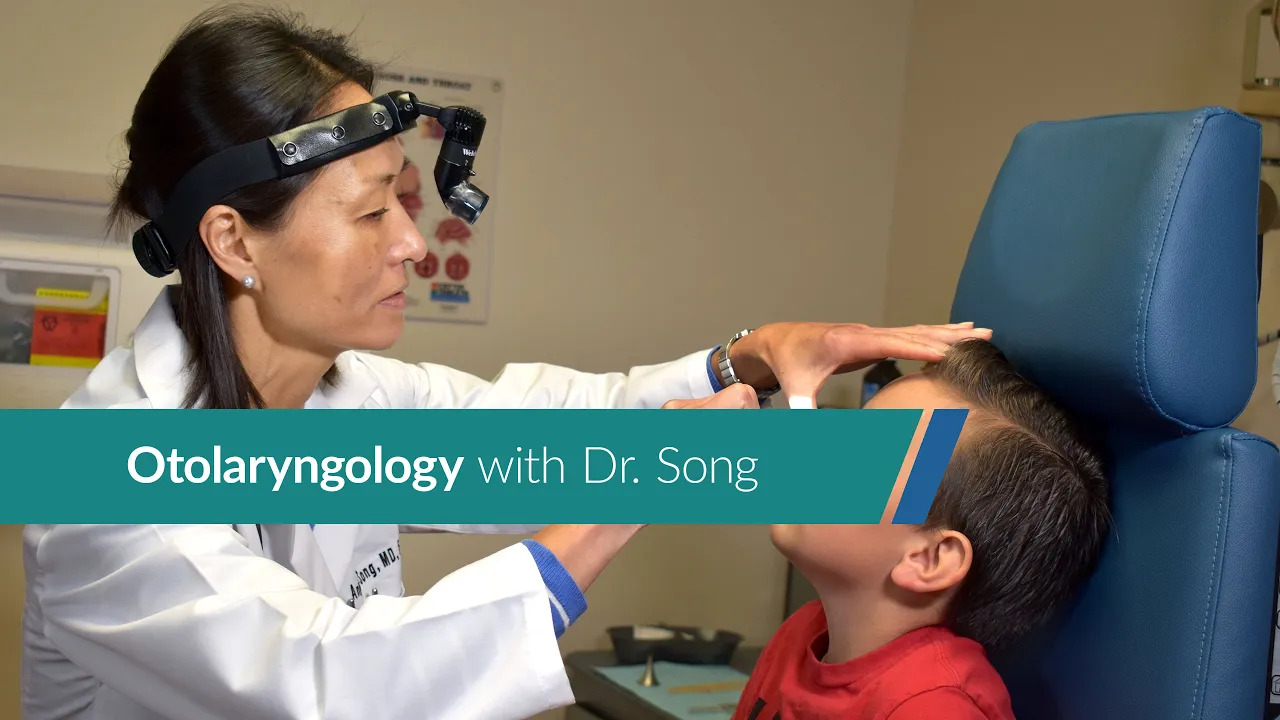Discovering the Area of Otolaryngology: What to Anticipate When You Speak With an ENT
Otolaryngology, commonly described as ENT, encompasses the medical diagnosis and treatment of nose, ear, and throat conditions. For those experiencing relevant problems, speaking with an ENT professional can offer quality and relief. Recognizing what to anticipate throughout such consultations is vital for reliable interaction and treatment. This introduction will lay out key facets of the ENT experience, consisting of common factors for sees and the processes entailed in diagnosis and treatment.

Understanding Otolaryngology: A Review
Otolaryngology, frequently described as ENT (Ear, throat, and nose) medication, is a customized branch of medicine that focuses on the medical diagnosis and therapy of conditions affecting these vital locations of the human body. This field includes a large range of conditions, consisting of those relevant to hearing, balance, breathing feature, and speech. Otolaryngologists are educated to handle both clinical and surgical treatments, using sophisticated strategies and modern technologies. Their competence prolongs beyond standard disorders, resolving concerns such as allergic reactions, sinus infections, and hearing loss. In addition, they play an important role in the administration of head and neck cancers cells, supplying comprehensive treatment customized to individual patient demands. Overall, otolaryngology continues to be crucial for keeping health and lifestyle in afflicted individuals.
Typical Reasons to See an ENT Professional
Many people seek the proficiency of an ENT expert for a selection of factors, reflecting the varied nature of conditions that influence the throat, ear, and nose. Typical issues consist of chronic sinus problems, which frequently brings about consistent nasal congestion and face pain. Allergies and their connected symptoms, such as itching and sneezing, also prompt sees to these professionals (Hearing). Hearing loss, whether gradual or unexpected, is an additional significant factor for assessment. Additionally, individuals might look for assessment for throat problems, including persistent hoarseness or ingesting difficulties. Rest apnea, characterized by disrupted breathing throughout rest, is often attended to by ENT professionals. Each of these problems highlights the significance of specialized treatment in taking care of intricate ENT-related health and wellness issues
Preparing for Your ENT Visit
When preparing for an ENT consultation, it is essential to gather appropriate information and consider any certain worries. Patients should compile a thorough medical history, including previous ear, nose, or throat issues, surgeries, and current medications. Documenting signs-- such as regularity, extent, and period-- can provide valuable understandings for the ENT professional. In addition, people must prepare a listing of questions they wish to ask, ensuring that all concerns are addressed throughout the browse through. Bringing along any kind of appropriate medical documents or test results can further help the ENT in recognizing the person's problem. Clients need to verify their visit details, consisting of location, time, and day, to decrease any type of final confusion. Appropriate prep work can improve the performance of the appointment and lead to much better end results.
What to Anticipate Throughout the Appointment
As the examination begins, the person can expect to participate in an extensive discussion with the ENT expert concerning their signs and case history. The specialist will certainly inquire regarding the duration, frequency, and seriousness of signs and symptoms such as hearing loss, nasal congestion, or aching throat. Additionally, the individual's previous medical conditions, drugs, and any pertinent family history will certainly be reviewed, helping the professional in forming a complete understanding of the client's wellness. The ENT may likewise ask concerning lifestyle aspects, such as exposure to irritants or irritants. This open discussion establishes a foundation for the examination, making certain that the client's worries are resolved and setting the stage for any type of essential assessments or suggestions for therapy.
Diagnostic Examinations and Procedures in Otolaryngology
A range of diagnostic tests and treatments are essential in otolaryngology to properly review and detect problems influencing the ear, throat, and nose. Typical tests consist of audiometry, which gauges hearing hearing aid charger feature, and tympanometry, assessing center ear pressure. Nasal endoscopy allows visualization of the nasal passages and sinuses, while laryngoscopy checks out the throat and singing cables. Imaging strategies, such as CT scans and MRIs, give thorough sights of head and neck structures. Allergy screening might also be conducted gateway ent to identify triggers for sinus or respiratory concerns. These analysis tools allow ENT experts to create a detailed understanding of people' problems, making certain customized and efficient administration strategies. Proper medical diagnosis is necessary for successful treatment outcomes in otolaryngology.
Therapy Alternatives Used by ENT Specialists
ENT experts provide a variety of therapy alternatives tailored to deal with specific problems impacting the ear, nose, and throat. These therapies range from conventional approaches, such as drug and way of life adjustments, to more intrusive treatments. Allergic reactions may be taken care of with antihistamines or immunotherapy, while persistent sinus problems may require nasal corticosteroids or sinus surgical treatment. For hearing loss, ENT experts frequently recommend listening device or medical interventions like cochlear implants. In situations of throat conditions, options can consist of speech therapy or operations to eliminate obstructions. Furthermore, they may supply guidance for taking care of sleep apnea, consisting of making use of CPAP gadgets or medical interventions. On the whole, the goal is to enhance patients' high quality of life with customized treatment and effective therapy strategies.
When to Seek Follow-Up Treatment With an ENT
When to look for follow-up care with an ENT professional is vital for handling recurring signs and symptoms or problems associated to ear, throat, and nose problems, recognizing. Patients should consider arranging a follow-up consultation try this web-site if signs linger despite preliminary therapy, such as chronic ear discomfort, nasal blockage, or throat pain. Changes in hearing, balance problems, or uncommon nasal discharge might additionally necessitate more assessment. Additionally, if a client experiences adverse effects from suggested medications or has undergone a surgical procedure, follow-up care is necessary to monitor recuperation and attend to any type of issues. Prompt appointments can assure reliable management of conditions, avoid potential issues, and supply comfort relating to one's health and wellness. Seeking follow-up care advertises aggressive wellness administration in otolaryngology.
Frequently Asked Questions

What Qualifications Should I Try to find in an ENT Expert?
When looking for an ENT expert, one should search for board certification, relevant experience, and strong individual reviews. Furthermore, reliable interaction abilities and a caring technique can greatly enhance the total therapy experience.
Exactly how Do I Choose the Right ENT for My Requirements?
Choosing the ideal ENT expert includes reviewing their credentials, experience, and individual testimonials (ENT). It is important to ponder their communication design and method to treatment, guaranteeing they align with the individual's certain wellness needs and preferences
Exist Any Dangers Linked With ENT Procedures?
The risks related to ENT treatments might include infection, bleeding, anesthesia issues, and possible damages to bordering structures. People must go over these dangers with their medical professional to recognize specific concerns and guarantee educated decisions.
Just How Can I Manage Stress And Anxiety Before My ENT Consultation?
To handle stress and anxiety prior to a visit, people can practice deep breathing workouts, envision positive end results, prepare inquiries in advancement, and look for support from good friends or family, promoting a feeling of reassurance and peace.
What Should I Do if I Experience Negative Effects From Therapy?
If adverse effects from therapy happen, the individual must promptly report them to their healthcare company. Adjustments to therapy or extra treatments may be essential to ensure security and effectiveness in handling their problem - Otolaryngology. As the appointment starts, the client can anticipate to engage in a detailed discussion with the ENT expert about their signs and symptoms and clinical history. These analysis tools enable ENT professionals to create an extensive understanding of individuals' problems, ensuring tailored and effective management strategies. ENT specialists use a selection of therapy options customized to resolve certain conditions influencing the throat, ear, and nose. When seeking an ENT expert, one should look for board certification, relevant experience, and solid individual testimonials. Choosing the best ENT specialist entails examining their qualifications, experience, and client reviews